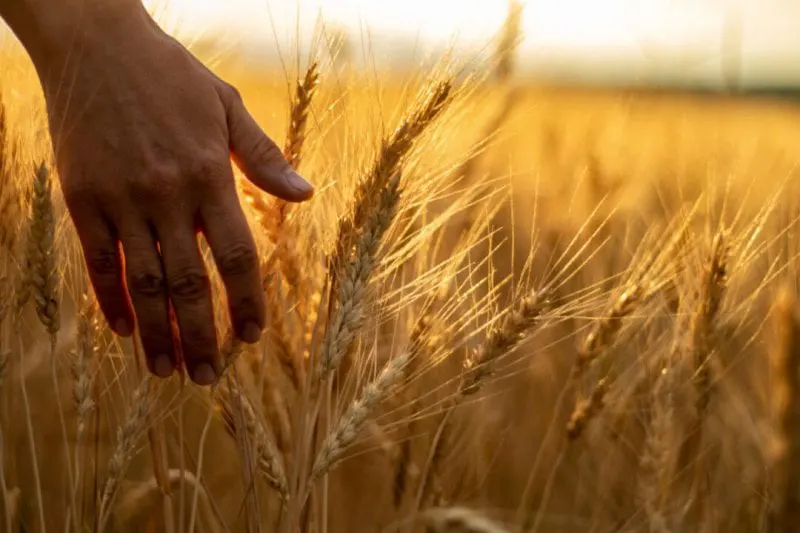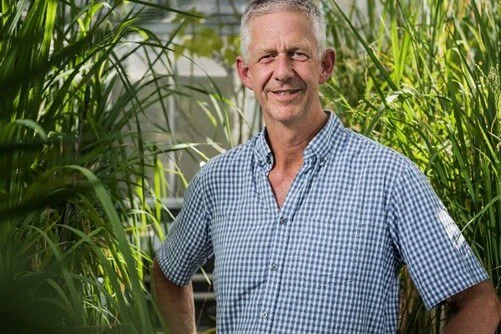‘Protein expansion’: Modified wheat developed in England and Chile could increase yields by 12%
‘Protein expansion’: Modified wheat developed in England and Chile could increase yields by 12%


Wheat is one of the most important food crops in the world, providing 20 per cent of human calories; with ever increasing global food demand, increasing crop yield is critically important.
Wheat breeders work hard to increase yield to meet global demand, but since the ‘green revolution’ of the 1960s, the rate of yield increase has been slowing and is currently less than 1 per cent per year.
Developing grain
Most improvements have been made by breeding varieties that produce higher numbers of grain, but it should also be possible to increase yield by producing plants with bigger grains. When this has been achieved, however, it is accompanied by a decrease in grain numbers.
Researchers at the University of York have now resolved this issue by directly modifying the growth of the young developing grain by increasing the amount of a protein that controls growth rates in plants.

This resulted in plants that produced grain that are up to 12 per cent bigger than in the conventional variety. In field experiments conducted by their collaborators in Chile, they found that there was no decrease in grain number, resulting in an increase in yield.
Global food production
Professor Simon McQueen-Mason, from the University of York’s Centre for Novel Agricultural Products (CNAP) at the Department of Biology, said:
Experts predict that we need to increase global food production by 50 per cent by 2030 in order to meet demand from population growth. The negative impacts of climate change on crop yields are making this even more challenging. While researchers are working hard to meet this challenge, there remains a lot to do.
Attempts to increase the yield of wheat have been thwarted by the apparent trade-off between grain size and grain number. We decided to side-step this complex control system by giving a boost to the natural growth system that controls the size of plant tissues.
We did this by increasing the levels of a protein called expansin, which is a major determinant of growth in plants. We targeted this modification so that it was confined to developing wheat grain, and are delighted by the results.
Field experiment
Research partners at the Universidad Austral de Chile conducted field experiments that demonstrated the effectiveness of the plants under agricultural conditions.
The team are now looking at ways to make this research accessible to farmers and the wider industry to help inform their decisions on crop production.
Read the original post here.

 | Videos | More... |

Video: Nuclear energy will destroy us? Global warming is an existential threat? Chemicals are massacring bees? Donate to the Green Industrial Complex!
 | Bees & Pollinators | More... |

GLP podcast: Science journalism is a mess. Here’s how to fix it

Mosquito massacre: Can we safely tackle malaria with a CRISPR gene drive?

Are we facing an ‘Insect Apocalypse’ caused by ‘intensive, industrial’ farming and agricultural chemicals? The media say yes; Science says ‘no’
 | Infographics | More... |

Infographic: Global regulatory and health research agencies on whether glyphosate causes cancer
 | GMO FAQs | More... |

Why is there controversy over GMO foods but not GMO drugs?

How are GMOs labeled around the world?

How does genetic engineering differ from conventional breeding?
 | GLP Profiles | More... |

Alex Jones: Right-wing conspiracy theorist stokes fear of GMOs, pesticides to sell ‘health supplements’




 Viewpoint — Fact checking MAHA mythmakers: How wellness influencers and RFK, Jr. undermine American science and health
Viewpoint — Fact checking MAHA mythmakers: How wellness influencers and RFK, Jr. undermine American science and health Viewpoint: Video — Big Solar is gobbling up productive agricultural land and hurting farmers yet providing little energy or sustainabilty gains
Viewpoint: Video — Big Solar is gobbling up productive agricultural land and hurting farmers yet providing little energy or sustainabilty gains Trust issues: What happens when therapists use ChatGPT?
Trust issues: What happens when therapists use ChatGPT? Fighting deforestation with CO2: Biotechnology breakthrough creates sustainable palm oil alternative for cosmetics
Fighting deforestation with CO2: Biotechnology breakthrough creates sustainable palm oil alternative for cosmetics California, Washington, Oregon forge immunization alliance to safeguard vaccine access against federal undermining
California, Washington, Oregon forge immunization alliance to safeguard vaccine access against federal undermining 30-year-old tomato line shows genetic resistance to devastating virus
30-year-old tomato line shows genetic resistance to devastating virus The free-range chicken dilemma: Better for birds, but with substantial costs
The free-range chicken dilemma: Better for birds, but with substantial costs ‘You have to treat the brain first’: Rethinking chronic pain with Sanjay Gupta
‘You have to treat the brain first’: Rethinking chronic pain with Sanjay Gupta
